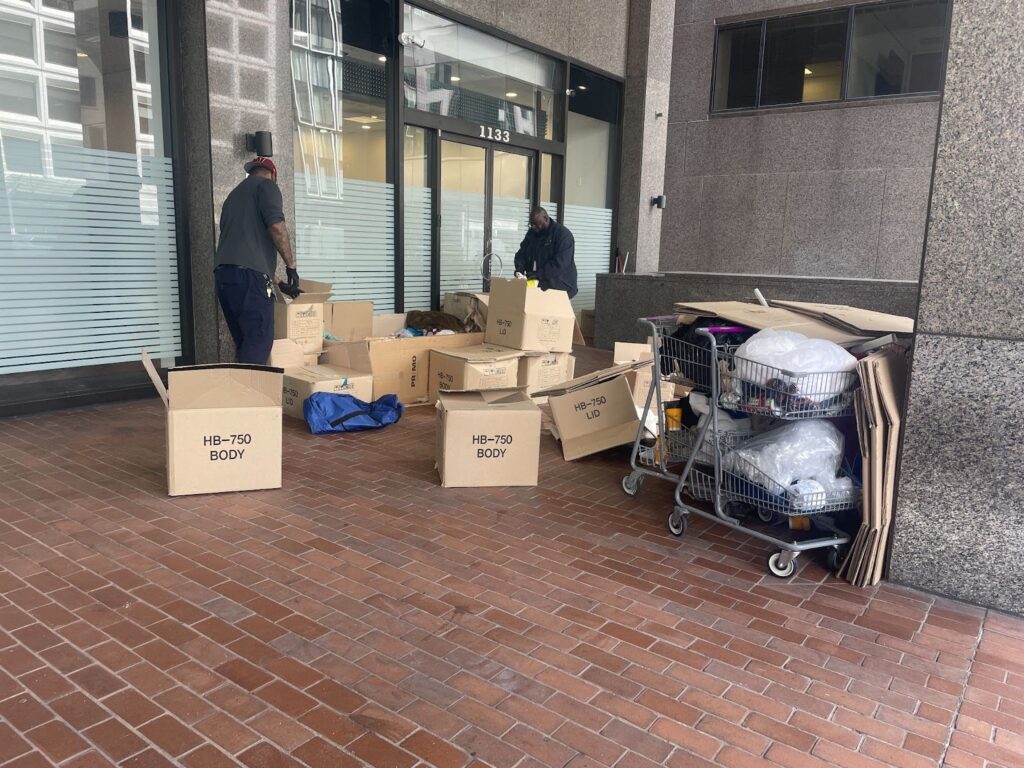Beneath the bridges of genteel Georgetown, not far from the mansions and embassies, there is an invisible village of small makeshift homes.
Under one bridge, castaway couches and tables are aligned into rooms. Under another, about 15 mattresses and blankets create an inn without walls.
Reaching the people who live in these shadows, winning their confidence and getting them the help they need is the complex challenge faced by the street outreach team at Georgetown Ministry Center (GMC).
“Working in shelters versus out on the streets, you see something different. We need to understand what this type of homelessness is about. It’s about untreated and untreatable mental illness,” says Gunther Stern, executive director of GMC. The center operates out of a modest office at Grace Episcopal Church located near the foot of Wisconsin Avenue NW where the bridges and overpasses shelter the city’s poorest residents.
The idea for GMC took root nearly three decades ago, in 1984, with the death of an elderly homeless man known only as Freddie, who perished in an icy phone booth in the neighborhood
Local leaders and members of the clergy began discussing the need for homeless services in Georgetown. In 1987 the Georgetown Clergy Association and Georgetown University founded GMC and the center hired its first social worker.
With an eye to preventing further hypothermia deaths, GMC helps coordinate a winter shelter effort from November to March. The location of the ten-bed shelter rotates semi-monthly among neighborhood churches with volunteers from each congregation providing friendly meals and fellowship to the vulnerable men and women they have managed to coax in out of the cold.
It’s a small yet important project in a neighborhood that lacks a permanent shelter. A shelter made out of eight trailers that offered more than 100 beds, located adjacent to the historic Watergate complex in nearby Foggy Bottom, was shuttered in 1992 due to community opposition.
On a recent day, making his rounds with the outreach team, Stern praised the support GMC has received from the neighborhood. But reminders of the tensions aroused by homeless programs are not hard to find. Some local residents still call the police in an effort to force out the individuals who have made a home under the neighborhood’s bridges.
Another major effort by GMC is a year-round drop-in center open from 8 a.m. to 4 p.m. daily. Homeless visitors, who are called guests, or members, rather than clients, can use a computer, take a shower, do their laundry or simply drink a cup of coffee. Some, who claim the center as their address, stop in to check their mail. If food has been donated, they can eat. The center also offers the services of a psychiatrist, doctor and nurse who are on site on a weekly or twice weekly basis.
The center is run using a “clubhouse” model of psychosocial rehabilitation that offers support for individuals with mental illness by creating a sense of belonging. It focuses upon guests’ strengths rather than their vulnerabilities.
GMC staff members encourage guests to get involved in running the clubhouse and to help keep it clean and well-maintained. Members can also participate in Tuesday house meetings, where they are able to voice concerns, talk about what they like about the Center and what could be worked on. The intent is that members know they are heard, said Stern.
Ricardo Cooper, Manager of Center Operations, said the clubhouse model provides a more comfortable environment than a large shelter because members feel an ownership for the Center community.
“We want them to feel wanted, not threatened, when they’re here,” Cooper said. “This is a community. We know each other so well and most people are always here.”
GMC staff also recently started taking members on excursions in the city. Outings have included a boat ride to a Nationals game and an evening of dinner and a Shakespeare play.
The services and programming at GMC are focused on giving members a community they identify with and the basic tools they need to get out of homelessness.
“It’s about a place to belong,” said Stern.








